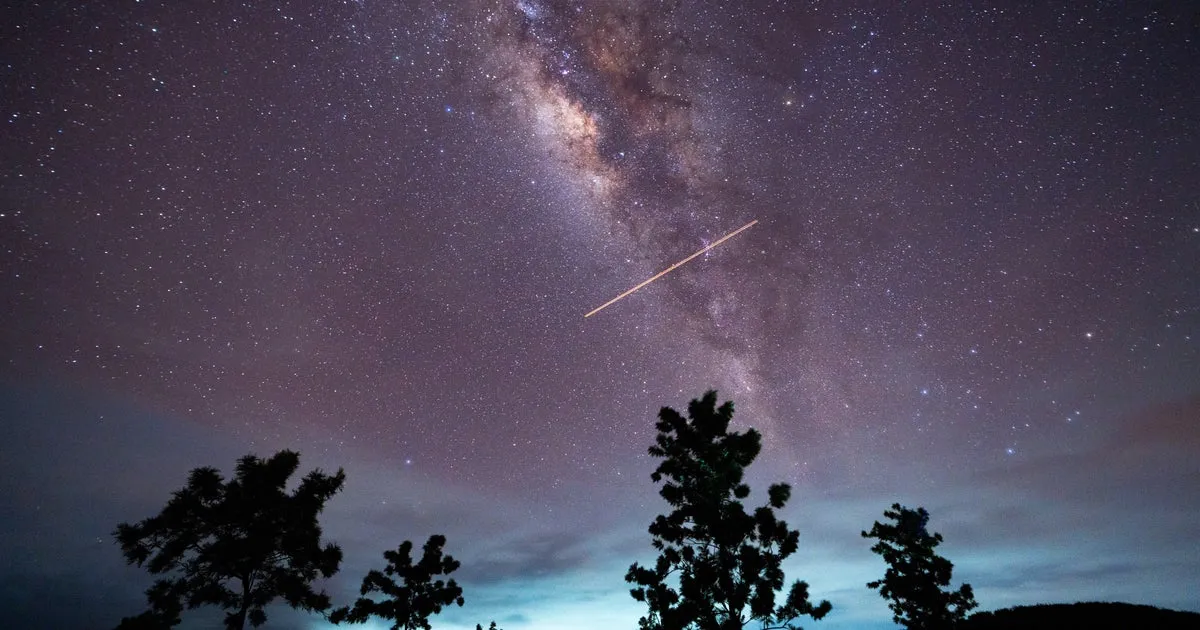
The Eta Aquariid meteor shower, a stunning natural event resulting from space debris left by the renowned Halley's Comet, is set to illuminate the night sky as it peaks tonight. According to NASA, the meteor shower will reach its maximum activity from Monday night through Tuesday morning, offering astronomy enthusiasts an incredible opportunity to witness this celestial display.
Astronomy fans eager to catch the meteors should check local weather forecasts for detailed insights on sky clarity in their specific areas. Under ideal conditions, you can expect to see about 50 Eta Aquariid meteors per hour at the height of the shower. However, this year, the brightness of the waxing moon may obscure some of the fainter meteors. Bill Cooke, the head of NASA's Meteoroid Environments Office, indicates that viewers can anticipate seeing around 10 to 15 meteors per hour, particularly just before dawn on Tuesday morning.
The Eta Aquariid meteor shower is set to peak from May 5 to May 6 but will remain active until May 21. To experience the meteors at their best, NASA recommends heading outside around 2 a.m. local time on Tuesday. The moon is expected to set around 3 a.m., allowing the skies to remain dark until dawn, which is ideal for viewing.
This meteor shower can be observed in both the Northern and Southern Hemispheres, though conditions are typically more favorable in the Southern Hemisphere. For optimal viewing, find a location away from artificial lights, lie down with your feet facing east, and allow your eyes approximately 30 minutes to adjust to the darkness. It's advisable to avoid looking at bright sources, such as cell phones, to enhance your viewing experience. Consider bringing a sleeping bag, blanket, or lawn chair for added comfort during your wait for the meteors.
Meteors are space rocks that enter Earth's atmosphere and create bright streaks across the sky. While meteors occur daily, meteor showers—which feature multiple meteors entering the atmosphere in a short time frame—are less common. As meteors streak through the atmosphere, they leave behind luminous trails, making them appear like shooting stars. Most meteors disintegrate upon entry, but a few survive and are classified as meteorites.
The Eta Aquariids are particularly notable for their impressive speed, traveling at approximately 40 miles per second. Meteors from this shower are often described as earthgrazers—elongated meteors that seem to skim the Earth's surface as they approach the horizon, especially in the Northern Hemisphere. These meteors originate from the debris shed by Halley's Comet, which releases layers of ice and dust each time it makes its way into the inner solar system.
The debris from Halley's Comet gives rise to two significant meteor showers each year: the Eta Aquariids in May and the Orionids in October. For those hoping to catch a glimpse of Halley's Comet itself, patience is required, as it completes an orbit around the sun approximately every 76 years and will not return to the inner solar system until 2061.